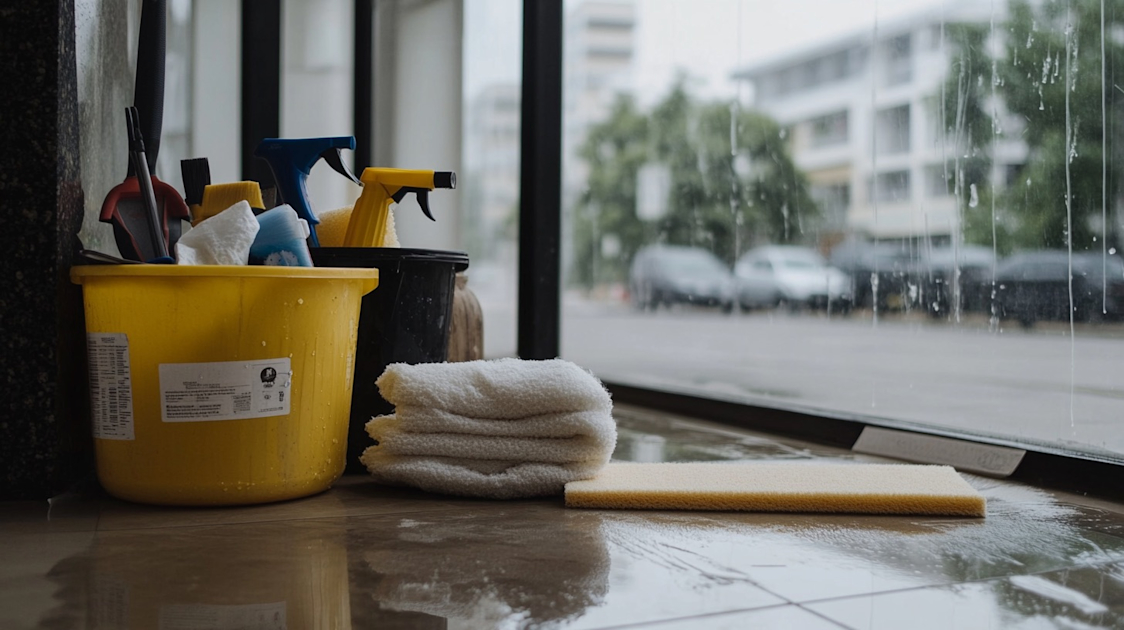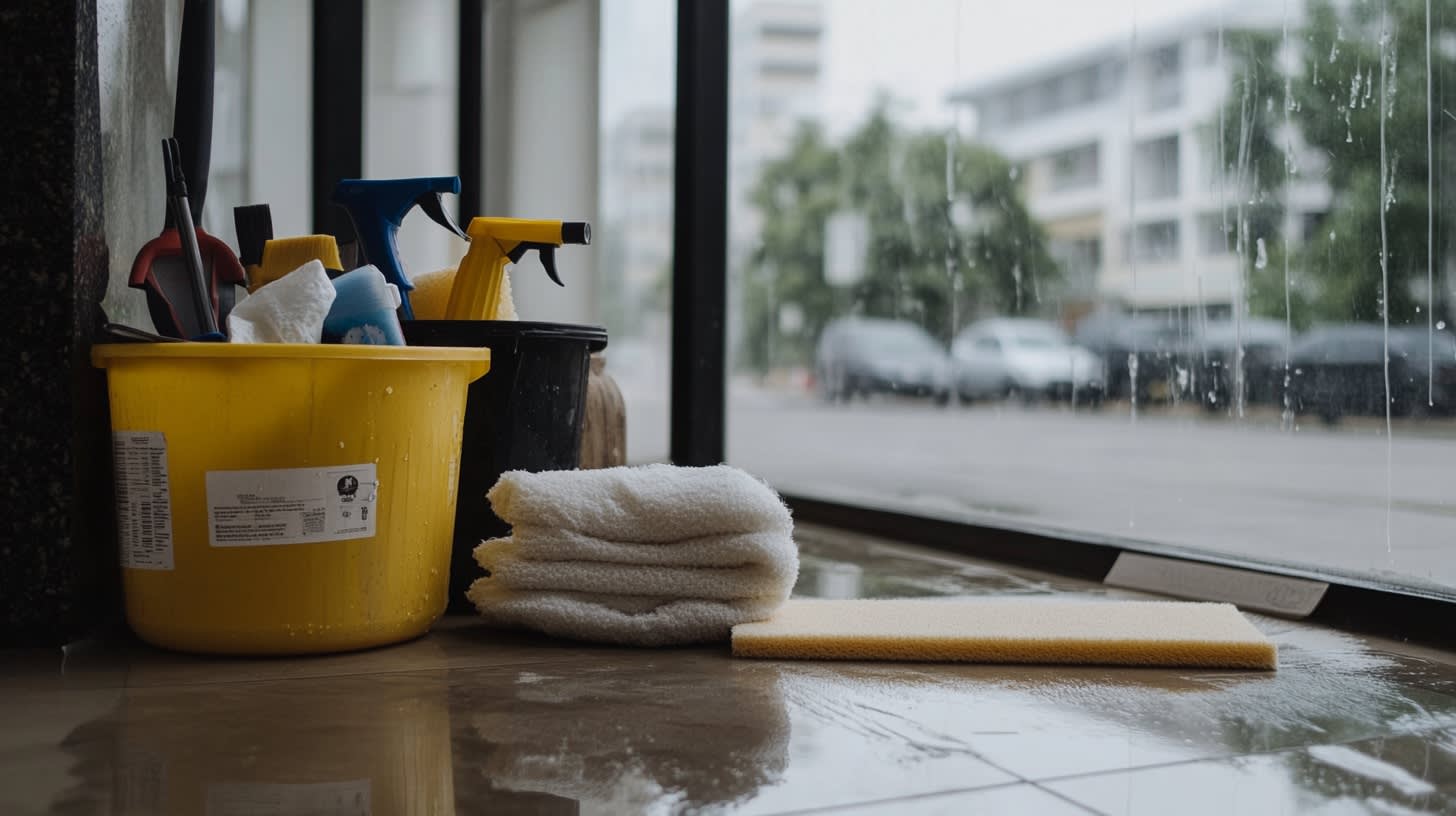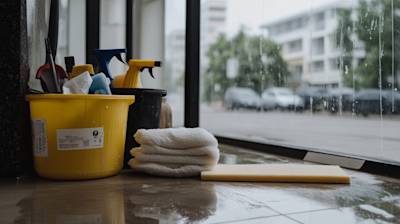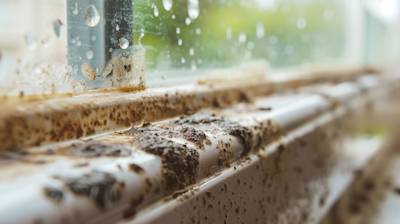Window washing can be a daunting task without the right tools. This informative article aims to explore the integral window washing equipment you need to make the job easier, safer, and more efficient. This guide will examine a variety of window cleaning tools and equipment, their features, uses, and how to choose the best ones to suit your needs.
Window Washing: Why The Right Equipment Matters
Before delving into the various types of window washing equipment available in the market, it's essential to understand why exact tools matter:
- They enhance efficiency and ease in cleaning.
- They help in reaching difficult spots, ensuring thorough window cleaning.
- Equipping yourself with the suitable tools reduces the chance of window damage during the cleaning process.
- It minimizes the risk of accidents that can occur when using inadequate or faulty equipment.
Essential Window Washing Equipment: A Breakdown
When it comes to window washing equipment, there is a multitude of options to choose from. This section will delve into each one, giving you a full understanding of what they are and what they do.
T-Bars and Sleeves
Donning a simple design, the T-bar and sleeve combo is a popular pick among window cleaners. These are perfect for applying water and soap solution onto the window surface.
Window Squeegees
Window squeegees play a pivotal role in leaving your windows streak-free. They come in a range of sizes and are best used to effectively remove the solution and subsequent dirt from your windows.
Tele-Pole
For high windows, a tele-pole is invaluable. These extendable poles can be fitted with various devices like squeegees, washers, and brushes to reach high or difficult-to-access areas.
Window Cleaning Solution
A good window cleaning solution should not be underestimated. A high-quality solution will break down grime, grease and dirt on your windows allowing for easier removal.
Scrapers
Scrapers, as the name suggests, are used for scraping off stubborn dirt or paint splatters on windows. They can come as a stand-alone tool while others can be attached to a tele-pole for easy reach.
Tool Belt
A tool belt ensures that your tools are always within reach, reducing the time spent looking for misplaced items. Find ones with multiple compartments to comfortably fit all your tools.
Additional Useful Window Washing Equipment
Apart from the essentials, there are a couple more tools that can prove useful within your window cleaning arsenal:
- Buckets: A good bucket is an essential yet underrated aspect of window cleaning. It's especially useful for carrying your cleaning solution around.
- Microfiber cloths: These cloths are excellent for drying and buffering windows after cleaning, leaving them spotless and streak-free.
- Ladder: A sturdy, adjustable ladder is indispensable for accessing hard-to-reach windows in the absence of a tele-pole.
Frequently Asked Questions about Window Washing Equipment
Is specialized equipment required to clean high-rise windows?
Yes, cleaning high-rise windows requires specialized window washing equipment to guarantee the safety of the washer and maintain the cleanliness of the windows. The tools needed would generally include water-fed poles, rope access equipment (such as harnesses, ropes, and descenders), aerial work platforms, or scaffolding. In addition, high-grade cleaners and scrapers may be used for effectively removing dirt and debris.
How does a water-fed pole system work in window washing?
A water-fed pole system is a piece of window washing equipment that allows the cleaner to work from the ground, even when cleaning higher stories. These extendable poles are equipped with a brush head and connected to a water supply. The water, usually purified to prevent streaking or spotting, is pumped up the pole and through jets in the brush where it loosens the debris on the window.
What material are window washing squeegees usually made of?
Window washing squeegees are often made of three components: the handle, the channel, and the rubber blade. Handles are typically made of metal, plastic, or a combination of both. The channel, where the rubber blade is inserted, is generally made of stainless steel or brass. The rubber blade, the part that does the actual squeegeeing, is made from high-quality, durable rubber that helps to prevent streaking and efficiently remove water from the window surface.
Is it necessary to use a ladder for window washing?
A ladder can be necessary if you are washing windows that are beyond arm’s length while standing on the ground. However, using a ladder does come with safety risks. To reach higher windows without a ladder, many window cleaners use an extendable pole or a water-fed pole system. With these tools, you can safely clean upper-story windows from the ground.
What makes a good window cleaning solution?
A good window cleaning solution doesn't leave marks or streaks on the windows. It should be strong enough to cut through grease, fingerprints, and other common types of dirt found on windows. Many professional window cleaners prefer to make their own solution with water, dish soap, and sometimes a small amount of vinegar or ammonia.
How often should window washing equipment be replaced?
The lifespan of window washing equipment largely depends on its use, care, and the quality of the equipment. Squeegee rubbers will wear out the fastest and may need to be replaced after every few hours of use. On the other hand, high-quality poles, handles, and squeegee channels could last several years. In general, any equipment piece should be replaced once it's no longer effectively performing its function.
Can you use residential window washing equipment for commercial use?
It's technically possible, but not recommended. Commercial window washing equipment is designed to handle the rigors of large, often more frequent, jobs. They are more durable and can clean more efficiently than residential-grade tools. On a practical level, commercial jobs often require specialized equipment like water-fed poles or even rope descent systems, which typically aren't necessary for residential work.
Pros of Window Washing Equipment
Efficiency
Faster Cleaning
One of the key advantages of using window washing equipment is that it facilitates much faster cleaning as compared to manual washing. High-quality equipment such as squeegees, water fed poles, and automated window scrubbers can clean windows in a fraction of the time it usually takes. This time saved translates into improved productivity and can allow users to take on more cleaning tasks in a single day.
Effort Saving
With window washing equipment, much of the physical work associated with window cleaning is significantly reduced. For example, water fed poles allow operators to clean windows from the ground, eliminating the need to stretch, reach or climb ladders. Automated window cleaners can work independently once set up, freeing the user to focus on other tasks.
Safety
Reduces the Risk of Accidents
The use of window washing equipment, particularly for high-rise buildings, greatly minimizes the risks related to climbing and working from heights. Innovative equipment such as water fed poles and robotic cleaners are designed to reach high windows from the ground, thereby limiting exposure to height related accidents.
Professional Handling and Operation
Another safety benefit of using window washing equipment is the professional handling and operation they offer. Most reputable brands include detailed instruction manuals and even offer training programs on how to effectively and safely use their tools.
Cost Savings
Less Labor Intensive
Using window washing equipment can save costs as it reduces the amount of labor needed in cleaning. Certain tools like the robotic window washers can even function independently, potentially reducing the need for multiple workers.
Less Use of Cleaning Chemicals
Window washing equipment are designed to maximize cleaning efficiency and often result in less use of cleaning chemicals. With equipment like water fed poles, the use of pure water technology often eliminates the need for detergents altogether.
Cons of Window Washing Equipment
High Initial Investment
Expensive Equipment
The high-quality and professional-grade window washing equipment often comes with a steep price tag. The initial investment for such equipment can be quite high, making it potentially unaffordable for small businesses or individual users.
Maintenance and Repair Costs
Apart from the upfront costs, users need to consider the potential maintenance and repair costs. Window washing equipment are electromechanical in nature and will likely need regular maintenance for optimal performance.
Learning Curve
Require Training to Operate
Whilst most high-grade window washing equipment comes with manuals, there is a learning curve involved in understanding the use of each equipment. This can result in downtime and reduced productivity until users get the hang of it.
Adapting to Technological Changes
For those not comfortable with modern technology, adapting to the use of automated or semi-automated window cleaning equipment can be overwhelming. This could also lead to improper handling and potential damage to the equipment.
Limited Versatility
Not Suitable for All Window Types
Some window washing equipment may not be suitable for all window types. For instance, robotic window cleaners work best on large, smooth and vertical glass surfaces such as commercial buildings. They may not perform effectively on small, fragmented windows or those with unusual shapes.
Dependence on Power Supply
Certain types of window washing equipment, such as robotic cleaners, rely on electrical power to function. This could limit their usability in areas where power outlets are not readily available or during power outages.
Summary
All things considered, window washing equipment has certainly made our lives easier, whether for commercial business or the average homeowner. It combines technology with convenience, enhancing the efficiency and safety of cleaning tasks, which can be quite complex and dangerous. This equipment ranges from squeegees, water-fed poles to automated robots, proving that there's a solution for every window cleaning need.
Equally important is the role of window washing equipment in maintaining cleanliness and hygiene, not only enhancing the aesthetic appeal of a space. Regularly clean windows can make a home or professional space feel brighter and more inviting. Neglected windows, on the other hand, can take a toll on the quality of natural light and can detract from a property's appearance.
So, while it may initially seem like a trivial consideration, investing in window washing equipment can have significant benefits. Moreover, the sense of satisfaction and accomplishment from seeing sparkly clean windows can seldom be compared to many other household chores. Therefore, next time you see your windows gathering grime and dirt, don’t hesitate in reaching out for the right tool from your trusty window cleaning equipment roster. It can save way more than just your time and energy!
About Grime Busters
Grime Busters is Portland, Oregon's go-to company for all your cleaning needs. We are a friendly, dedicated, and professional team who are passionate about what we do. Our primary goal is making your spaces shimmer and shine! Whether you need residential or commercial services, we've got you covered. We take a lot of pride in the quality of our work and the satisfaction of our clients. At Grime Busters, we are on a mission to bust grime, one room at a time, while helping to create cleaner, healthier, and happier spaces for the Portland community.
Tags: cleaning, tools, supplies,








